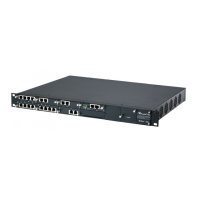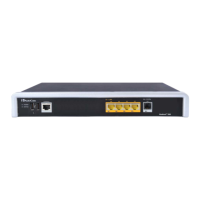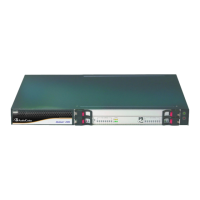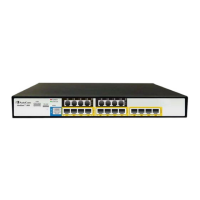User's Manual 722 Document #: LTRT-89730
Mediant 3000
To support this feature, you need to include the case-sensitive string, "<MAC>" anywhere
in the configured file name of the URL, for example:
IniFileURL = 'https://www.company.com/config_<MAC>.ini'
The device automatically replaces the string with its hardware MAC address, resulting in a
file name request that contains the device's MAC address, for example,
config_00908F033512.ini. Therefore, you can configure all the devices with the same URL
and file name.
46.2.9 File Template for Automatic Provisioning
To facilitate automatic provisioning setup, you can use a single template to define the files
to download during automatic provisioning. The template uses special keywords to denote
the different file types to download and in the URL address of the provisioning server it
uses a placeholder for the file names which is replaced by hardcoded file names and
extensions according to file type, as described in more detail below.
Note:
• Unlike the parameters that define specific URLs for Auxiliary files (e.g.,
CptFileURL), the file template feature always retains the URLs after each
automatic update process. Therefore, with the file template the device always
attempts to download the files upon each automatic update process.
• If you configure a parameter that defines a URL for a specific file (e.g.,
CptFileURL), the settings of the file template (TemplateUrl parameter) is ignored
for the specific file type (e.g., CPT file).
• Additional placeholders can be used in the file name in the URL, for example,
<MAC> for MAC address (see MAC Address Placeholder in Configuration File
Name on page 721).
To use a file template for automatic provisioning:
1. Define the file types to download by the file template, using the AupdFilesList
parameter. Use the keywords listed in the table below to specify each file type. For
example, to specify ini, Feature Key, and CPT files:
• ini File:
AupdFilesList = 'ini', 'fk', 'cpt'
• CLI:
# configure system
(config-system)# automatic update
(automatic-update)# template-files-list ini,fk,cpt
2. Define the URL address of the provisioning server on which the files (specified in Step
1) are located, using the TemplateUrl parameter. When you configure the URL, you
must include the file type placeholder, "<FILE>", which represents the file name. For
each file type specified in Step 1, the device sends an HTTP request to the server,
where the placeholder in the URL is replaced with the filename and extension, as
listed in the below table. For example, if you configure the AupdFilesList parameter as
in Step 1 and the TemplateUrl parameter to:
• ini File:
TemplateUrl = 'http://10.8.8.20/Site1_<FILE>'
• CLI:
# configure system
(config-system)# automatic update
(automatic-update)# template-url http://10.8.8.20/Site1_<FILE>
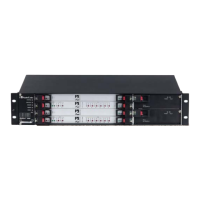
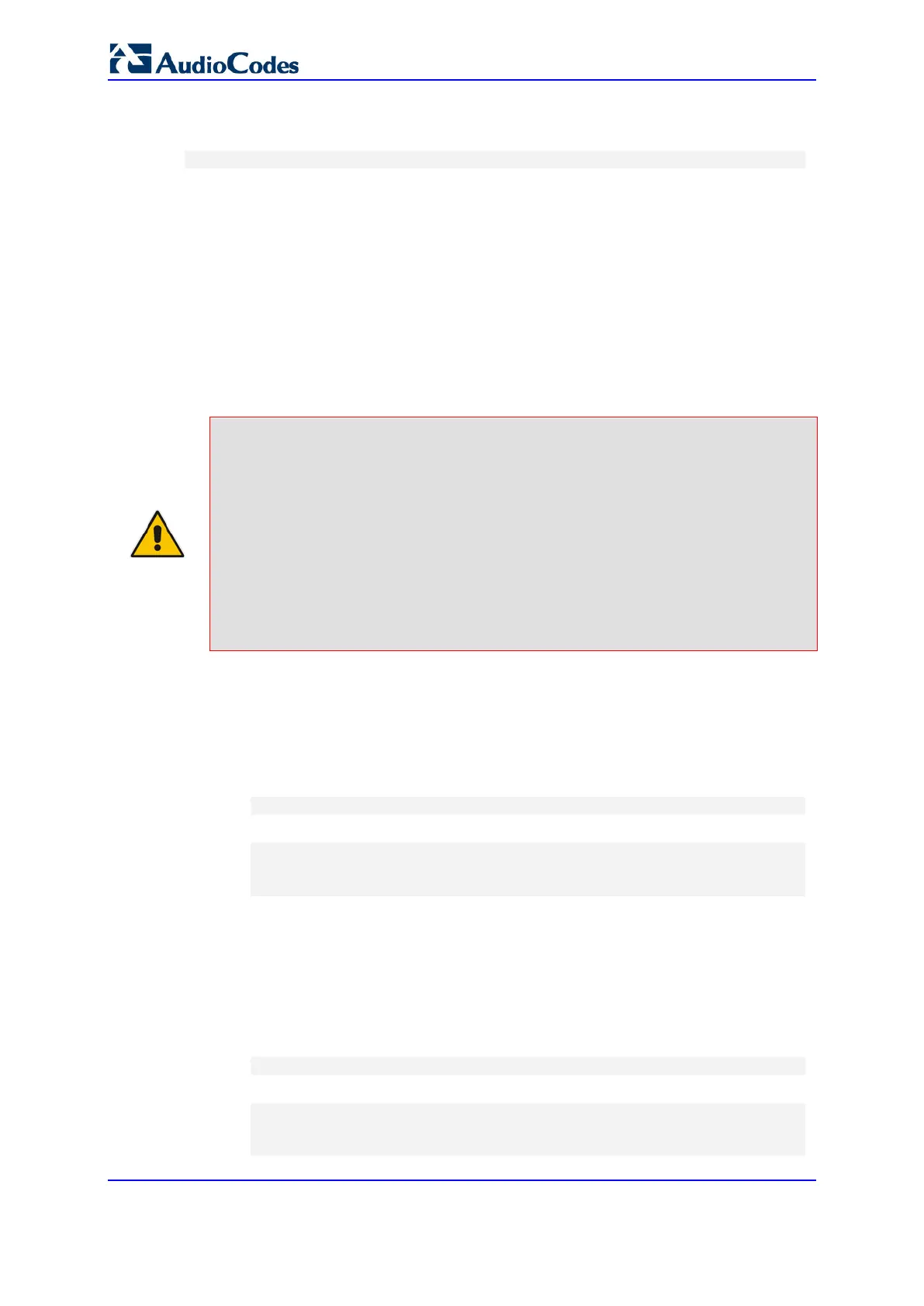